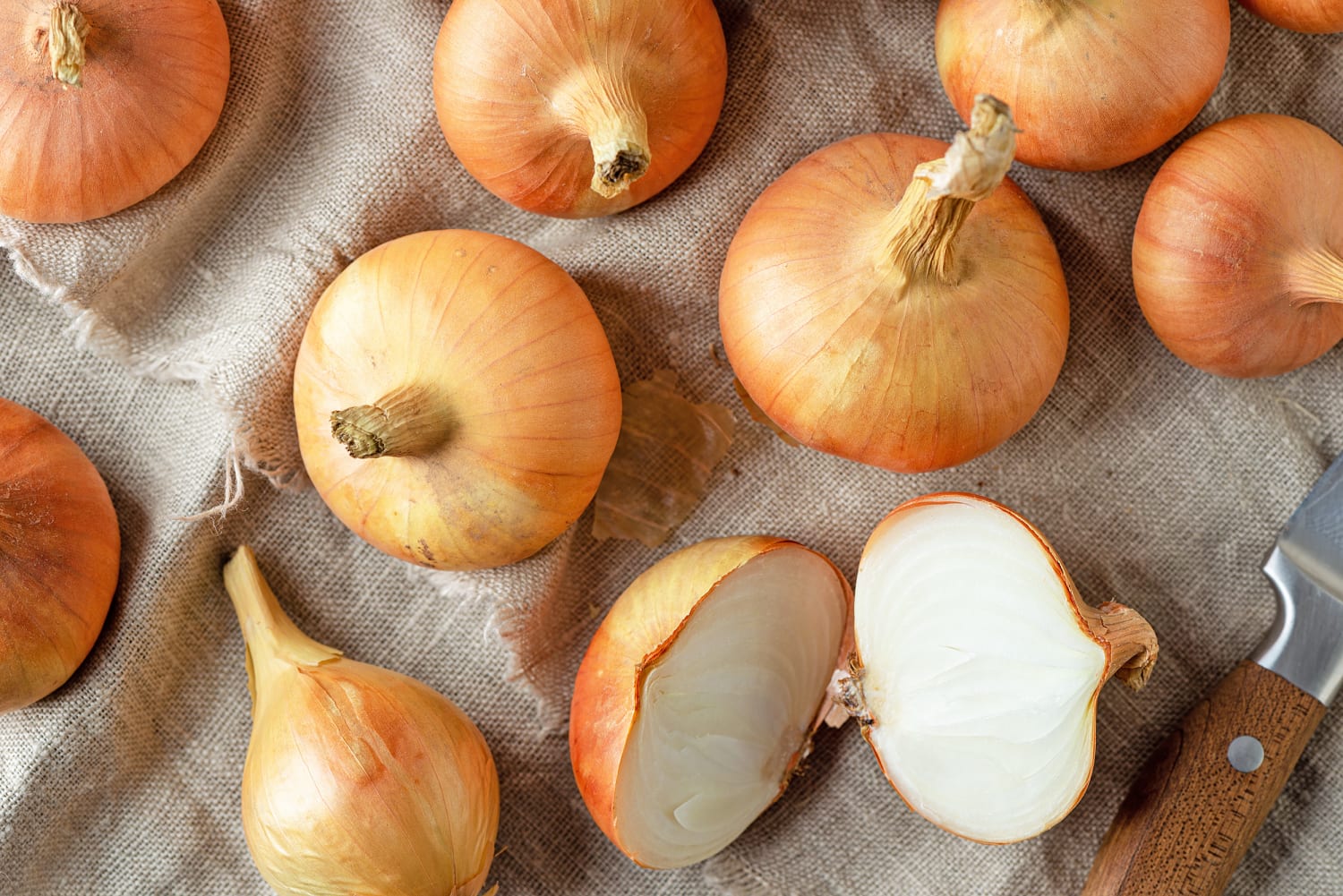
Yellow onions are a staple in kitchens worldwide, but how much do you really know about them? These humble bulbs pack a punch not just in flavor but also in health benefits and culinary versatility. From their origins to their nutritional value, yellow onions have a rich history and a variety of uses that might surprise you. Whether you're a budding chef or just someone who loves to cook, understanding more about this common ingredient can elevate your dishes to new heights. Ready to peel back the layers? Here are 25 fascinating facts about yellow onions that will make you appreciate them even more.
Key Takeaways:
- Yellow onions are not only delicious but also nutritious, packed with vitamin C and antioxidants. They're great for boosting the immune system and fighting inflammation.
- From ancient Egypt to modern kitchens, yellow onions have a rich history and versatile uses. They can be caramelized, pickled, and even used to ward off evil spirits!
What is a Yellow Onion?
Yellow onions are a staple in kitchens worldwide. Known for their versatility and robust flavor, they are used in countless recipes. Let's dive into some interesting facts about this humble vegetable.
-
Yellow onions are the most common type of onion used in cooking due to their balanced flavor profile.
-
They have a golden-brown skin and a white, sometimes slightly yellow, flesh.
-
When cooked, yellow onions develop a sweet, caramelized flavor, making them perfect for soups, stews, and sauces.
Nutritional Benefits of Yellow Onions
Yellow onions aren't just tasty; they also pack a nutritional punch. Here are some health benefits you might not know about.
-
They are low in calories, with about 45 calories per medium-sized onion.
-
Yellow onions are rich in vitamin C, which helps boost the immune system.
-
They contain antioxidants like quercetin, which can help reduce inflammation and fight free radicals.
-
Onions are a good source of dietary fiber, aiding in digestion and maintaining gut health.
Historical Facts About Yellow Onions
Yellow onions have a rich history that spans centuries. Let's explore some historical tidbits.
-
Ancient Egyptians revered onions, believing their spherical shape and concentric rings symbolized eternal life.
-
Onions were used as currency in the Middle Ages, often given as gifts or used to pay rent.
-
During the American Civil War, onions were used to treat soldiers' wounds due to their antiseptic properties.
Growing Yellow Onions
Ever wondered how yellow onions are grown? Here are some fascinating facts about their cultivation.
-
Yellow onions thrive in well-drained soil with plenty of sunlight.
-
They are typically planted in early spring and harvested in late summer or early fall.
-
Onions are biennial plants, meaning they take two years to complete their life cycle, but they are usually harvested after the first year.
-
Proper spacing is crucial when planting onions to ensure they have enough room to grow.
Culinary Uses of Yellow Onions
Yellow onions are incredibly versatile in the kitchen. Here are some ways they can be used in cooking.
-
They are often the base for soups, stews, and sauces due to their rich flavor.
-
Caramelizing yellow onions brings out their natural sweetness, making them a great topping for burgers and steaks.
-
They can be pickled to add a tangy crunch to sandwiches and salads.
-
Yellow onions are a key ingredient in French onion soup, a classic dish loved by many.
Fun Facts About Yellow Onions
Let's round off with some fun and quirky facts about yellow onions that you might not know.
-
The sulfur compounds in onions can make you cry when you cut them, but chilling the onion before cutting can reduce this effect.
-
Onions have been used in traditional medicine for centuries to treat various ailments, including colds and earaches.
-
The largest onion ever grown weighed over 18 pounds, setting a world record.
-
Onions can absorb odors, so placing a cut onion in a room can help eliminate unpleasant smells.
-
In some cultures, onions are believed to ward off evil spirits and bring good luck.
-
Onions are part of the Allium family, which also includes garlic, leeks, and chives.
-
The word "onion" comes from the Latin word "unio," meaning single or one, reflecting the onion's single bulb structure.
The Final Slice
Yellow onions aren't just kitchen staples; they're packed with history, health benefits, and culinary versatility. From ancient Egypt to modern kitchens, these humble bulbs have played a significant role in our diets and cultures. They're rich in antioxidants, vitamins, and minerals, making them a nutritious addition to any meal. Whether you're sautéing, roasting, or caramelizing, yellow onions add a depth of flavor that's hard to beat. Plus, their antibacterial properties can help boost your immune system. Next time you chop one up, remember you're not just cooking; you're participating in a tradition that spans centuries. So, keep exploring new recipes and enjoy the many benefits of this amazing vegetable. Happy cooking!
Frequently Asked Questions
Was this page helpful?
Our commitment to delivering trustworthy and engaging content is at the heart of what we do. Each fact on our site is contributed by real users like you, bringing a wealth of diverse insights and information. To ensure the highest standards of accuracy and reliability, our dedicated editors meticulously review each submission. This process guarantees that the facts we share are not only fascinating but also credible. Trust in our commitment to quality and authenticity as you explore and learn with us.


